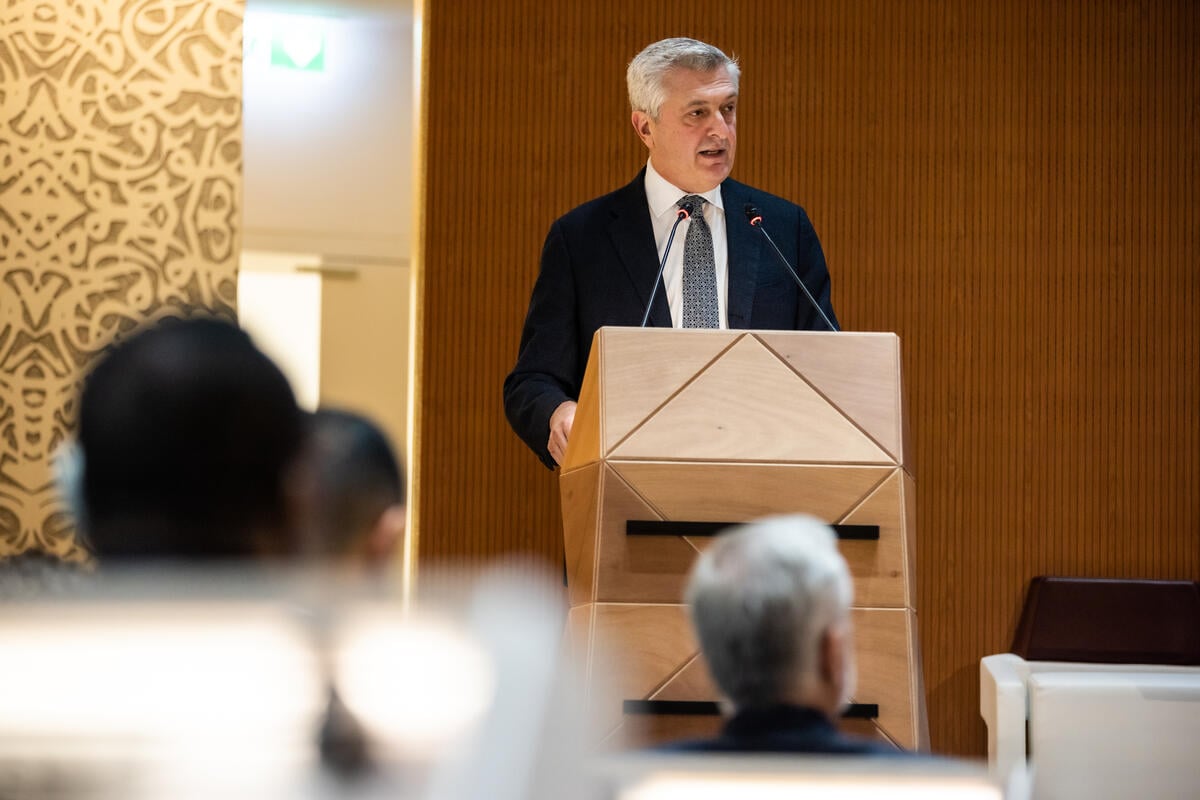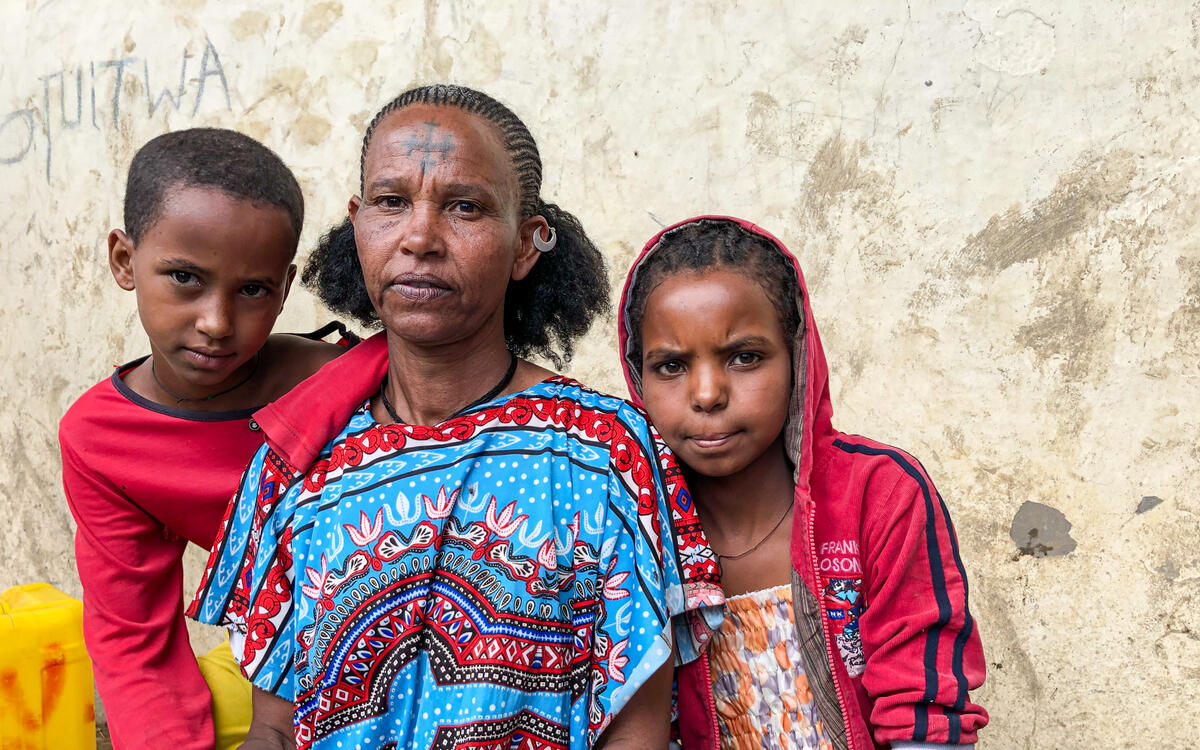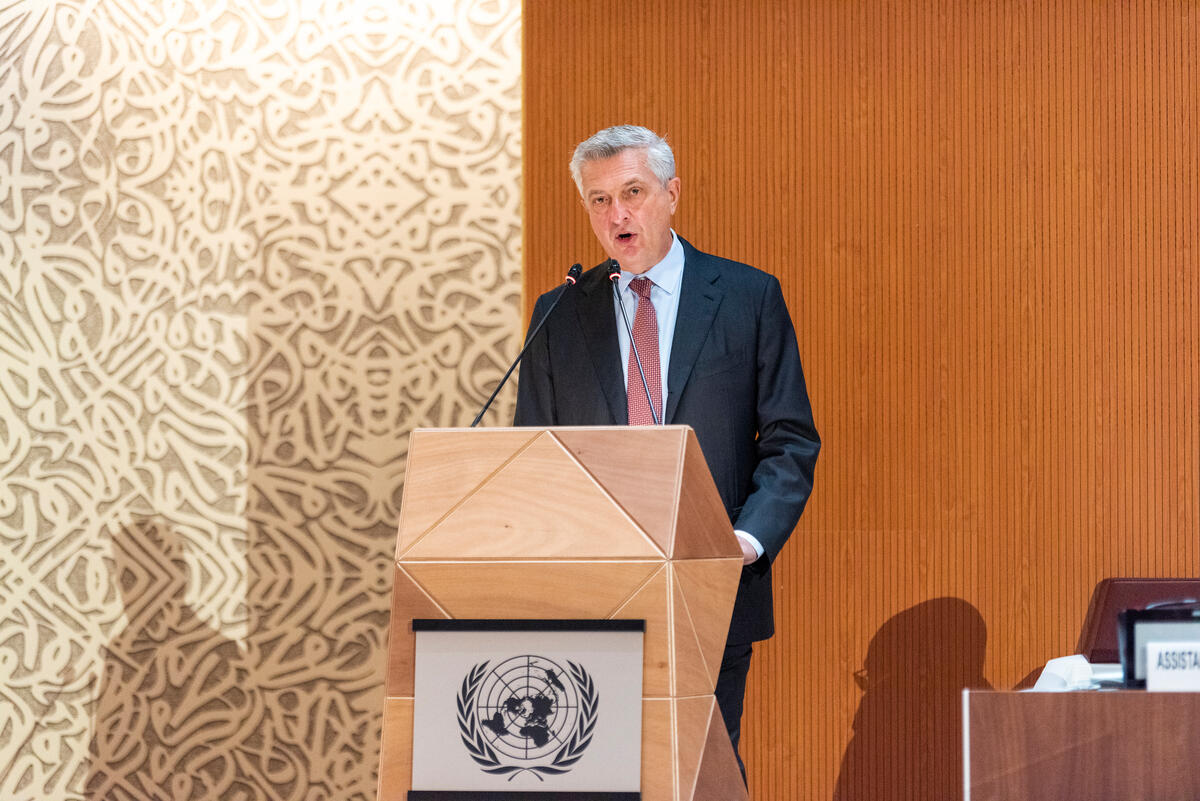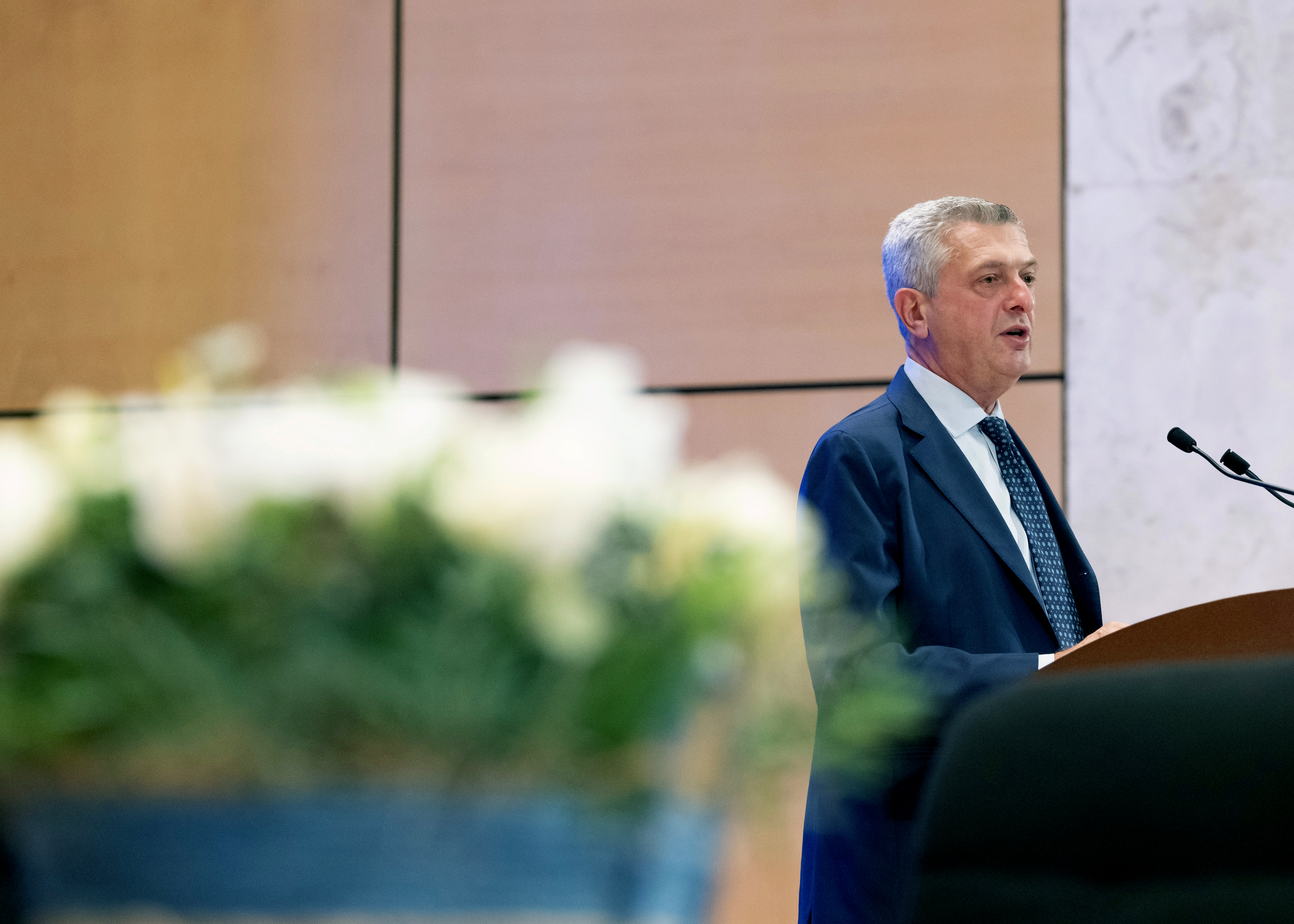UNHCR Executive Committee concludes annual meeting
UNHCR Executive Committee concludes annual meeting

GENEVA, October 5 (UNHCR) - The annual meeting of UNHCR's governing Executive Committee concluded Friday amid growing recognition of the need to find new and innovative approaches to deal with global displacement and migration, High Commissioner António Guterres said.
"The 21st Century is a century of people on the move," Guterres said at a press conference following the final session of the weeklong meeting in Geneva's Palais des Nations, the UN's European headquarters. "Some move because they want a better life, a better future for their children. But many unfortunately move because they are forced to flee. They have no alternative."
While UNHCR is not a migration agency, distinguishing between those who are forced to flee and those who do so by choice is becoming increasingly difficult and is posing an enormous challenge for the international community.
"There are more and more migrants in the world," Guterres said. "It's not only a north-south movement, it's also a south-south movement. We witness it around Europe, we witness it in southern Africa, we witness it in South Asia, we witness it in Latin America."
Dealing with the complexities of this "asylum-migration" nexus was a key question in the 72-nation Executive Committee's discussions, the High Commissioner added.
"In these mixed flows, how can we guarantee that we detect the people in need of protection, and that those people in need of protection are granted physical access to asylum procedures and fair treatment of their asylum claims," he asked.
While governments have a right to manage their borders, that management should not create obstacles for refugees deserving of protection under international law. Around the Mediterranean, in the Gulf of Aden and in other parts of the world, a lack of legal routes meant increasing numbers of people were falling prey to smugglers and human traffickers, with dramatic and often deadly results.
Guterres said the asylum-migration question would be a central topic at a "Dialogue on Protection Challenges" scheduled by UNHCR in December.
A second key background issue at the Executive Committee meeting was the changing and increasingly complex pattern of forced displacement.
"When we deal with refugees, we deal with people who are fleeing persecution or war," Guterres said. "But we have also more and more people who have to flee for other reasons. We are witnessing situations of extreme deprivation, climate change environmental degradation - together with war, conflict and persecution. It is more and more difficult to distinguish between these different categories of forced displacement.
"War is many times driven by scarcity of resources; scarcity of resources can be driven by climate change," he continued. "All of these things are more and more mixed together and there is a big challenge for the international community to find ways to deal with the forms of forced displacement that are taking shape in the 21st Century, and finding new and innovative solutions to cope with it."
In response to a question on migration controls in industrialized countries, Guterres said it was obvious that when there were not enough opportunities for legal migration, illegal migration tended to grow. This in turn made it increasingly difficult to detect among populations on the move those people in need of international refugee protection.
"There is such a thing as a global labour market and in markets, as you know, supply and demand tend to meet," he said. "They meet legally if possible. When it's not possible, they meet illegally. But they meet, which means people will be on the move and there is not an effective way of stopping that just by using border controls.
"It's more and more important from our perspective - even to create the conditions for protection to be more easily delivered - to have more meaningful possibilities for legal migration and more meaningful development cooperation policies addressing the pressing needs of some areas of the world that have become particularly vulnerable," he said.
"If you look at Africa, for example, the impact of globalization, plus the impact of climate change, plus the problems of governance and conflict make the situation for some parts of the continent increasingly desperate for their citizens. So to have a positive protection environment, it is good to have a more meaningful set of policies both in development cooperation and in the promotion of legal migration."









